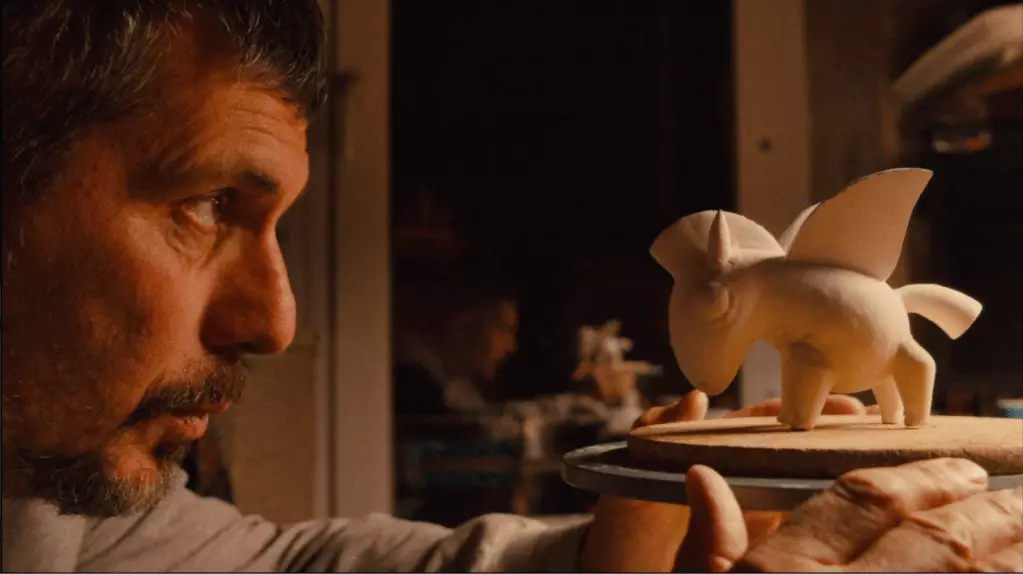The recent documentary, “Porcelain War,” directed by Brendan Bellomo and Slava Leontyev, serves as a resonant testament to the resilience of the human spirit amidst conflict. The film, which draws an evocative parallel between the fragility of porcelain and the enduring spirit of Ukraine, offers critical insights into how art can emerge as a compelling form of resistance against oppression. Leontyev himself is a testament to this ethos, choosing to wield creativity instead of weaponry, showcasing that true power can reside in expression rather than destruction.
During a virtual discussion with acclaimed filmmaker Guillermo del Toro, Leontyev posits that the camera constitutes a more powerful tool than a firearm. This statement underscores a profound ideological shift, where art becomes the primary instrument of resistance. For Leontyev, creating art amidst the turmoil in Ukraine reaffirms that creativity can challenge and resist tyranny. Del Toro’s reflections further illuminate this sentiment, as he emphasizes the necessity of art in a world that may soon, under increasing authoritarianism, disregard its significance. His concerns highlight a troubling trend in which art could be undermined, viewed merely as impractical in the face of pressing global issues.
The Role of Artists in Turbulent Times
As we navigate a modern landscape marked by political upheaval and social unrest, the voices of artists become increasingly important. “Porcelain War” is not just a documentary; it is a call to arms for creatives fighting against oppressive regimes. The celebration of the film’s recent accolades, including its Documentary Feature award, indicates a growing recognition of art’s essential role in narratives of resistance. The presence of influential figures in the film’s support network, including industry stalwarts like Chris Columbus and Rashida Jones, emphasizes a collective backing for artists daring to address serious themes.
Del Toro’s comments encapsulate a larger discourse about the importance of maintaining artistic freedom in the face of growing international conservatism. The film enters a context where cultural institutions might find themselves politicized or undermined—as seen with the recent changes at the Kennedy Center, underlining the need for vigilant advocacy for artistic expression. The timely relevance of “Porcelain War” implies that art is not merely a reflection of society but an activator that can influence change.
As the team behind “Porcelain War” embarks on a global campaign of screenings and discussions, it signals their commitment to promoting understanding and empathy through art. Their efforts serve as a reminder that resistance can materialize in myriad forms—be it through film, visual art, or other creative outlets. The conviction to harness the power of art amidst chaos echoes the broader struggle for freedom and autonomy that resonates in societies around the globe today.
“Porcelain War” stands as a crucial narrative within the artistic landscape, unearthing how creativity can defy the darkness. By embracing the idea that art is a form of resistance, we are invited to reconsider our perceptions of power and the myriad ways individuals and communities can assert their spirit against adversity.


Leave a Reply